As motorists, we can make a meaningful contribution to tackling climate change by reducing our car emissions.
As well as cutting CO2 output and helping to make our air cleaner - thereby combatting respiratory diseases - it can also make our cars more fuel efficient and therefore cheaper to run.
You also run the risk of failing your next MOT if emission levels are too high.
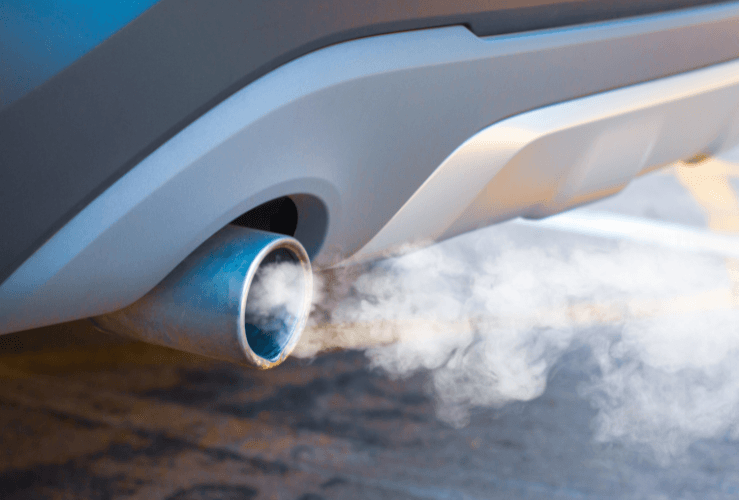
What are the UK maximum levels for CO2 emissions?
CO2 emissions for cars are limited by legislation.
All new cars must not exceed 95g CO2/km. And by 2030 new cars will be required to reduce CO2 emissions by 37.5%.
London regulations on car emissions
In some areas - such as central London - vehicles that emit over a certain amount of CO2 are not permitted.
In the case of central London, you can check car emissions (based on when it was new) by entering your registration on this page. However, your vehicle may be more polluting now than when it was new.
Car emission checks
Your local garage may also be able to check car emissions at its next service.
Some garages offer free emission checks.
Here we look at some straightforward ways to minimise your car emissions.
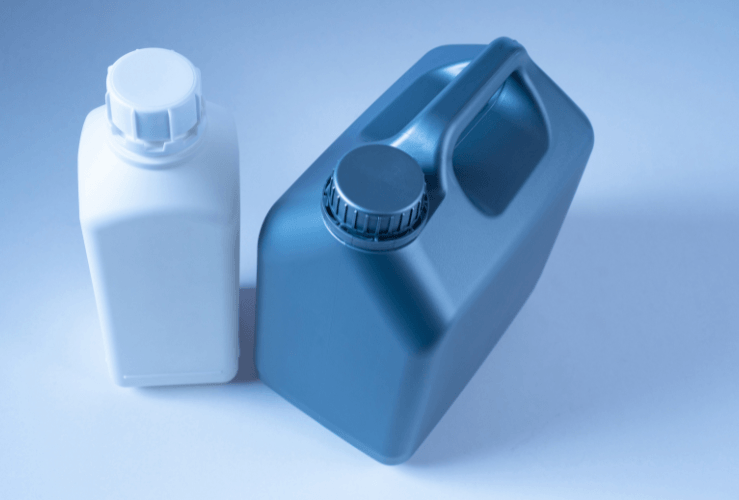
Add a cleaning agent to your fuel tank
Over time, harmful deposits can build up in your fuel system.
Adding a special cleaning agent to your tank every three months will work to remove these deposits, reducing car emissions.
Ensure your tank is at least a quarter full before adding the agent. Empty the entire contents of the bottle into the tank (but be sure to read the usage instructions).
What about diesels?
And if you’re wondering how to lower diesel emissions for an MOT - a fuel system cleaner is one of the most effective - and easiest - methods.
Quality diesel emissions cleaners can be bought online for a few pounds - and may save you much more on premature repairs in the future.
Used widely, this simple, cheap product results in cleaner cars - and cleaner air.
Regular oil changes
Keeping your vehicle topped up with fresh oil is one of the simplest - and most important ways - you can keep your engine running smoothly and cut your car CO2 emissions.
Oil lubricates the moving parts of your engine, preventing wear, debris build-up and overheating - ultimately reducing the chances of a premature mechanical failure, and lowering emissions.
Consult your car owner's manual to learn how often the oil must be changed. Ensure the stipulated grade of oil is used.
And in terms of how to lower diesel emissions for an MOT, regular oil changes are an effective long-term solution.
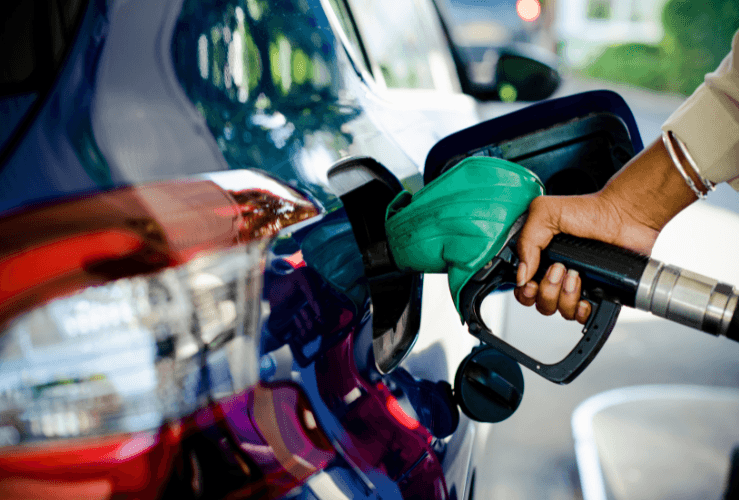
Switch to a premium fuel
While some motorists eschew premium fuels as a waste of money, they may actually be an effective way to reduce emissions.
Fuels labelled 'super' or 'premium' contain additives that clean your fuel system.
Try filling up with one of these fuels a few times and see if it makes any difference.
Emissions are likely to go down, and you may even notice an improvement in performance.
However, the age, model and condition of your car will affect how much of an impact a premium fuel has.
Regular tyre pressure checks
Tyres that aren’t optimally pressurised waste fuel. In some cases this might be as much as half a litre per 60 miles driven.
Taking the example of someone who does drive 60 miles a day, at current unleaded prices this could mean 80p of fuel is wasted daily - amounting to around £290 per year in extra costs.
Michelin states the average tyre loses 1 psi (0.076 bar) per month.
Low tyre pressure means higher rolling resistance - which consumes more fuel. And of course, more fuel means more emissions.
Find out how to check your tyre pressure
When the time comes to replace your tyres, look for ones with a low rolling resistance.
Opting for the very cheapest tyres may be a false economy if the rolling resistance is high - resulting in bad news for the environment and your pocket.
Change air filter in line with your manual
Your engine needs to 'breathe' - and in order to do so must be free of dust and debris.
This is where your car's air filter comes in - it keeps out unwanted particles, helping your engine run at an optimum level.
If you live in an area where dust is a bigger issue, you may need to change your air filter more frequently.
Once again, read your manual to determine how often filters should be changed.
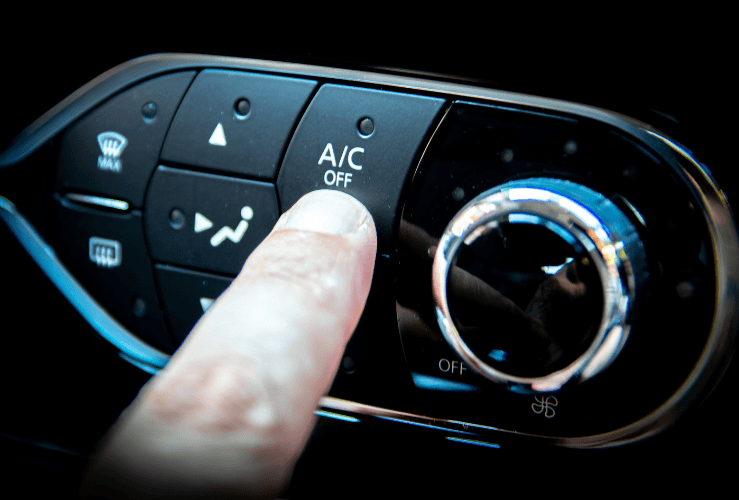
Reduce air conditioning use
When your car’s AC unit is switched on, your engine has to work harder - burning more fuel and releasing more emissions into the environment.
Winding down the windows in preference to using air conditioning could be a false economy because it will increase drag on your vehicle - which will burn more fuel to stay at the desired speed.
A better option is to continue to use climate control but to turn it off a few miles from your destination.
No matter how often or seldom you use your AC system, you should turn it on weekly to avoid costly repairs later on.
It's good to have your air condition system serviced at least once a year - ideally in spring before the warm weather begins.
Limit idling time
There's a school of thought that says idling uses less fuel that stopping and restarting, but this has been debunked as a myth.
In fact, idling more than 10 seconds will burn more fuel than the process of restarting.
If you've been halted in traffic and expect to be there for more than 10 seconds, turn off your engine.
Needless to say, excessive and unnecessary idling burns extra fuel and releases more emissions into the environment.
If your vehicle is fitted with a stop-start system, be sure to have it turned on.
Beware that idling outside schools, care homes and hospitals reduces the surrounding air quality.
Moreover, Section 42 of the Road Traffic Act 1988 enforces Rule 123 of the Highway Code, which states: "You must not leave a vehicle's engine running unnecessarily while that vehicle is stationary on a public road."
These rules apply to public roads only - not to private driveways or supermarkets, for instance.
Drive less
Owning a car is extremely useful and often a lot of fun, but it's worth considering if you need to drive as much as you do.
Are there errands and trips that could be done on foot or by bicycle? Would public transport be a feasible alternative to driving (after all, the bus or train is going to burn the fuel anyway)?
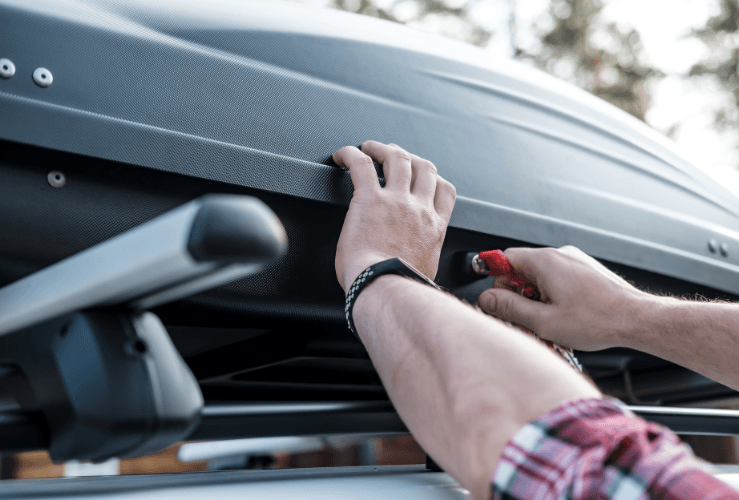 Make your car more aerodynamic
Make your car more aerodynamic
The sleeker your car, the less fuel it will burn and the less CO2 it will pump into the air.
With this in mind, ensure roof racks and roof boxes are removed when not in use, since they create unnecessary drag.
Change the way you drive
Fuel efficiency and therefore emissions can be improved by making small changes to the way you drive.
Aim to brake earlier, reduce your overall speed, switch gears sooner, and avoid the higher rev ranges.
And while it may seem somewhat 'Big Brother', some vehicles have monitoring systems that alert you to driving habits that could be burning more fuel than is needed.





